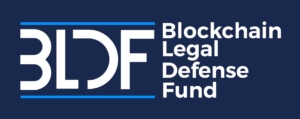DeFi and Legal Uncertainty: Privacy and Regulation Challenges
Decentralized Finance (DeFi) has emerged as one of the most transformative developments in blockchain technology, offering a way for individuals and organizations to interact with financial services without relying on traditional intermediaries like banks or brokers. However, as DeFi continues to grow, it faces increasing scrutiny from regulators who are concerned about privacy, fraud, and the lack of clear legal frameworks. These concerns are coming to a head as global regulators grapple with how to manage the risks posed by decentralized platforms while preserving the innovation they enable.
The Rise of DeFi and the Privacy Dilemma
DeFi allows users to engage in financial activities such as lending, borrowing, and trading directly on blockchain platforms, cutting out the need for centralized entities. DeFi protocols rely on smart contracts, which automatically execute transactions based on predefined conditions. These systems offer benefits such as increased transparency, reduced transaction costs, and global accessibility.
However, the decentralized and anonymous nature of many DeFi platforms raises significant privacy concerns. Transactions on DeFi platforms are typically recorded on public blockchains, which means that while personal identities may be obscured, the transaction data is visible to everyone. This transparency can conflict with modern data privacy regulations like the General Data Protection Regulation (GDPR) in the European Union and the California Consumer Privacy Act (CCPA).
For example, under the GDPR, individuals have the right to request the deletion of their data. This “right to be forgotten” is fundamentally incompatible with blockchain’s immutable ledger. Similarly, the CCPA imposes strict requirements on how personal data is collected, stored, and used, but many DeFi protocols may not comply with these standards because they are decentralized, with no single entity controlling the data.
Regulatory Scrutiny of DeFi Platforms
Regulatory bodies worldwide are increasingly concerned about the risks posed by DeFi platforms, especially as they continue to gain popularity. The Securities and Exchange Commission (SEC) in the U.S. has expressed concerns about DeFi protocols facilitating unregistered securities offerings, while European regulators are focusing on how DeFi platforms handle user data and comply with financial regulations.
In particular, anti-money laundering (AML) and know-your-customer (KYC) requirements are becoming major points of contention. Traditional financial institutions are required to verify the identity of their customers to prevent illegal activities such as money laundering or terrorist financing. DeFi platforms, however, often allow users to remain anonymous, making it difficult for regulators to ensure that illicit activities are not taking place. This has led to calls for tighter regulations on DeFi, with some suggesting that decentralized platforms should be subject to the same KYC and AML rules as traditional financial institutions.
The European Union’s MiCA Regulation and DeFi
In 2024, the European Union’s Markets in Crypto-Assets (MiCA) regulation is set to come into effect, introducing the first comprehensive framework for regulating cryptocurrencies and DeFi platforms across Europe. While MiCA primarily targets centralized crypto asset service providers, it could have significant implications for DeFi as well. The regulation includes provisions for stablecoins, token offerings, and market integrity, which could indirectly impact DeFi protocols that rely on these digital assets.
MiCA’s most controversial aspect is its approach to privacy coins and other crypto assets that prioritize anonymity. While MiCA does not explicitly regulate DeFi platforms, its provisions could lead to tighter scrutiny of any platform that facilitates the transfer of privacy coins or operates in a way that could be interpreted as non-compliant with Europe’s broader financial regulations.
Potential Impact of Regulation on DeFi Innovation
As regulatory pressure increases, many in the DeFi community are concerned that over-regulation could stifle innovation. One of the core principles of DeFi is its ability to operate without the oversight of centralized authorities. If regulators require DeFi platforms to implement strict KYC or AML controls, it could undermine the very decentralization that makes these platforms attractive in the first place.
Moreover, the costs of complying with new regulations could be prohibitive for smaller DeFi projects, potentially driving them out of the market. Large, well-funded platforms may be able to absorb these costs, but smaller, more innovative projects could be left behind, limiting the diversity of the DeFi ecosystem.
On the other hand, proponents of regulation argue that it is necessary to ensure the long-term sustainability of DeFi. Without regulatory oversight, DeFi platforms could become havens for illicit activity, which would damage the industry’s reputation and lead to harsher crackdowns. By establishing clear legal frameworks, regulators could help DeFi mature into a safe, transparent, and reliable part of the global financial system.
The Future of DeFi Regulation
The regulatory landscape for DeFi in 2024 is complex and evolving. While governments and regulators are working to address the privacy, security, and financial risks posed by decentralized platforms, the DeFi community is grappling with how to balance innovation with compliance. In the coming years, the success of DeFi may depend on its ability to adapt to new regulatory requirements without sacrificing the decentralized ethos that makes it unique.
The MiCA regulation in Europe, the SEC’s scrutiny in the U.S., and emerging privacy laws worldwide will shape the future of DeFi. Developers and users alike must stay informed about these regulatory changes and be prepared to navigate the challenges they bring.






Leave a Reply
Want to join the discussion?Feel free to contribute!